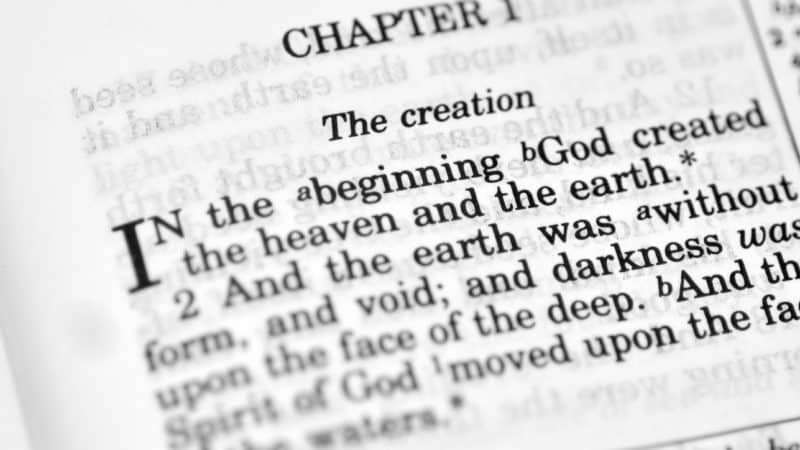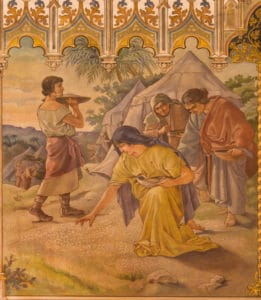
God made the Sabbath to help us stay connected with Him. We, the created, remember and celebrate our Creator.
And the Bible shows that the Sabbath has been there ever since this world was created (Genesis 2:2-3). And it shows that it will remain even in eternity, when the Redeemed will worship God every Sabbath in the New Earth (Isaiah 66:22-23).
In this post, you will learn how God gave the Sabbah to His people, and how they honored it in both the Old and New Testaments of the Bible.
Here are 17 things you’ll learn:
- The Sabbath in the Old Testament
- The Sabbath began at creation
- The Sabbath was kept after Creation by significant Bible characters
- The Sabbath was kept by the Israelites before Sinai
- The Sabbath commandment was officially given at Sinai
- What was the Sabbath year and what was its significance?
- Sabbath observance had a lot to do with the history of Israel as nation
- God made the Sabbath for both the Israelites and non-Israelites
- Sabbath observance in the Northern Kingdom
- Sabbath observance in the Southern kingdom
- The significance of the Sabbath during the Babylonian Captivity
- Restoration of the Sabbath after the exile by Nehemiah
- Sabbath observance during the New Testament times
- Jesus’ teaching about the Sabbath
- How the early Christians kept the Sabbath
- The Sabbath will be celebrated for eternity
- The Sabbath is a consistent theme throughout the Bible
Sabbath in the Old Testament
In the Old Testament, we trace the Sabbath right from the second chapter of the book of Genesis. God declares the Sabbath holy and pauses to enjoy what had just been created.
This day is mentioned again in Exodus. Then it is given as the fourth commandment to the Israelites at Mt. Sinai. The command was to “remember” the Sabbath (which means they would have already known about it) and to “keep it holy” by pausing from their work, just as God did.
And throughout the 39 books of the Old Testament, we see how they responded in obedience or disobedience to the Sabbath Commandment, and the consequences that followed.
But in all these, you’ll find that God deals with His people patiently.
He instructs them of His commandments. He provides opportunities for them to learn. He gives them warnings through His prophets—and second chances as well.
And even when they completely fail at keeping His Sabbath holy, He gives them promises of hope and disciplines them. And after they learn His ways, He restores them back in His favor, helps them to reform, and guides them in keeping the commandments.
Let’s see how all this unfolds in the earliest history of God’s people and the Sabbath.

Sabbath Began at Creation
The Bible introduces the Sabbath at the end of the first week of earth’s existence. Genesis 1 shows how God “created the heavens and the earth” and everything in it in six literal days. Days that were made of six literal evenings and mornings (Genesis 1:1, 5, 8, 13, 19, 23, 31).
And after He saw that all He made was very good, He went on to make another day—the seventh day. Genesis 2:2-3 says:
“And on the seventh day God finished His work that He had done, and He rested on the seventh day from all His work that He had done. So God blessed the seventh day and made it holy, because on it God rested from all His work that He had done in creation” (Genesis 2:2 – 3, ESV).
God didn’t make this rest day because He was tired or needed rest after all that work of creating. In fact, the Bible tells us that “He does not faint or grow weary” (Isaiah 40:28, ESV).
Instead, He made a point to stop and meditate on how it was “good.”
Then He did three significant things to make the day special and different from the other six:
- He rested on the seventh day – He was refreshed on this day that was a memorial of His creation of the world and delighted in it.
- He blessed the day – From then on, it was a blessed rest day of the Lord.
- He sanctified and hallowed the day – By sanctifying it, He separated it and appointed it as a holy day for holy use.
Notice that it’s because He rested on the seventh day that He blessed it and sanctified it as a memorial of His creation work.
The seventh day was humanity’s first full day in existence after being created on the sixth day. And the first two humans spent it with their Creator.
From then on, humanity was to follow God’s example of resting on this day and using it to reflect on what God had done for them.
And after the seventh day, God stopped assigning names to the new days. So humanity would start again counting the days of a new week from the first day. The seven-day weekly cycle ended on the seventh day.
It’s interesting how there is no other logical reason to explain why we have a seven-day weekly cycle. We know that:
- The 24-hour day is based on the rotation of the earth on its axis.
- The month is based on the lunar cycle or rotation of the moon around the earth.
- The year is based upon the earth’s revolution around the sun.
But the seven-day week is unique in that it has its origin at the very beginning of time, when God created the weekly cycle.
There’s no mystery about where the Sabbath originated.
The Sabbath was instituted by God Himself. It was kept by Adam and Eve on their first day of existence. And since they were the parents of the human race, the Sabbath was meant for all humanity, including all who would come in all future generations.

After Creation and Significant Bible Characters
After Adam and Eve at Creation, there is no direct mention of the Sabbath for some time.
We read that man lost his innocence and was expelled from the garden of Eden (Genesis 3). And the result of the Fall was a sinful nature that has plagued humanity since then, causing us to have a tendency to go against God’s ideal for us.
Even at some point, humanity became so depraved that God destroyed everyone in a worldwide flood (Genesis 6-8). He only spared Noah’s family, the one that God found to be “a righteous man, blameless among his contemporaries” and that he “walked with God”” (Genesis 6:9, CSB).
So there were still some people who embraced God’s ways and “walked with God.”.
In Genesis 12 we encounter Abraham. God asked him to leave his native country and go to a far off country that God promised to give to him and his descendants. He also promised Abraham that He would make him into “a great nation” (Genesis 12: 2, NKJV). And through this nation, God intended to bless “all the families of the earth” (Genesis 12:3, NKJV).
But before his descendants would be a nation, God revealed to him that they would go to another country for 400 years and be treated as slaves. But then, He would deliver them and bring them back to the promised country (Genesis 15:13-16). More on this later.
But back to Abraham, God describes him as a man that was faithful to keep His laws. He said,
“Abraham obeyed My voice and kept My charge, My commandments, My statutes, and My laws” (Genesis 26:5, ESV).
And as we’ll see in the coming sections, one of God’s commandments requires observance of the seventh-day Sabbath in memory of the Creation (Exodus 20:8-11).
So, if God said that Abraham kept His commandments, it means he also kept the Sabbath.

Sabbath Observance In Israel
As promised, God blessed Abraham with a son, Isaac (Genesis 21:1-3). And one of Isaac’s sons was named Jacob, whose name was later changed to Israel by God’s angel who blessed him after a nightlong struggle (Genesis 32:24-28).
Jacob (Israel) had 12 sons. And through an intriguing series of providence, Jacob and his twelve sons, together with their families, went to Egypt to escape famine (Genesis 47:11; Exodus 1:1-5).
While in Egypt, they grew in numbers to form the great nation of Israel (also called the Hebrews since they spoke the Hebrew language) promised to Abraham (Exodus 1:6,7).
The nation was made of 12 tribes, each named after Jacob’s 12 sons. But Joseph was split into two tribes named after his two sons, Ephraim and Manasseh (Genesis 48:5; 49:1-28).
After being in Egypt as foreigners, they were subjected to slavery for many years (Exodus 1:8-17). Then as promised, God delivered them from the Egyptian slavery through Moses (Exodus 3:1-10; See also Exodus 4-15).
Then they began their journey back to the land promised to Abraham. They travelled through the wilderness for 40 years before getting back to the promised land. During this wilderness experience, God sought to bring them back to following His original plan for them. The plan which they had forgotten or neglected through the centuries of slavery by a nation that did not fear God or follow His plan.
And one of the things they needed to be re-educated about was the significance of the Sabbath.
Before giving of the Commandments at Sinai
Before giving the Sabbath commandment to the Israelites officially, God first taught them how to keep the Sabbath.
He did this through the way He provided their daily food supply.
First, He “allowed [them] to hunger.” And when they complained to Moses that they were hungry, He “fed [them] with manna” (Deuteronomy 8:3, NKJV).
God told Moses:
“Behold, I will rain bread from heaven for you. And the people shall go out and gather a certain quota every day” that I may test them, whether they will walk in My law or not” (Exodus 16:4, NKJV).
God was very clear that the reason He provided the food the way He did was that He may test them, if they will walk in His law.
And how was He going to do that?
He outlined it as follows:
“And it shall be on the sixth day that they shall prepare what they bring in, and it shall be twice as much as they gather daily” (Exodus 16:5, NKJV).
God provided the manna miraculously in that it fell from heaven in the night. Then each morning, the Israelites would go and collect just what they needed for that day. If they gathered more than they could eat in one day, it would rot by the next morning (Exodus 16:18-21, NKJV).
But on the sixth day the people were to gather twice as much manna. The extra portion would be eaten on the seventh day. And the only reason given for this change was that the seventh day was “a Sabbath rest, a holy Sabbath to the Lord” (Exodus 16:23, NKJV).
The extra food was to be prepared on the sixth day by doing all the cooking (baking and boiling) before the Sabbath started in the evening after the sixth day. And whatever was kept for the Sabbath did not rot like it always did on the next morning (Exodus 16:23-24).
And when some people tried to go out to get food on Sabbath morning, there was nothing (Exodus 16:27).
So,God protested against their disobedience saying:
“‘How long will you refuse to keep my commandments and my laws? See! The Lord has given you the Sabbath; therefore on the sixth day he gives you bread for two days. Remain each of you in his place; let no one go out of his place on the seventh day.’ So the people rested on the seventh day” (Exodus 16:27-30, ESV).
In not gathering manna on the seventh day, they were able to rest from their labor, keeping the Sabbath day holy.
The miracle of the manna continued, week in and week out, for 40 years. By this, God laid the groundwork in having His people establish a regular practice of keeping the Sabbath (Exodus 16:35).

The Sabbath Commanded at Sinai
After establishing regular Sabbath observance among the Israelites, God gave them the Ten Commandments at Mount Sinai (Exodus 19).
These were the principles of God’s government. They were summarized into ten comprehensive laws that showed us how to relate with God and with one another.
They were written by God’s own finger on tablets of stone to show their Divine significance and permanence (Exodus 31:18).
The fourth commandment among these was dedicated to reminding God’s people to observe the Sabbath. It says:
“Remember the Sabbath day, to keep it holy. Six days you shall labor, and do all your work, but the seventh day is a Sabbath to the Lord your God. On it you shall not do any work, you, or your son, or your daughter, your male servant, or your female servant, or your livestock, or the sojourner who is within your gates.
“For in six days the Lord made heaven and earth, the sea, and all that is in them, and rested on the seventh day. Therefore the Lord blessed the Sabbath day and made it holy” (Exodus 20:8-11, ESV)
Notice that even here, God directly says that the Sabbath is given as a memorial of Creation. A weekly reminder of what happened in the Creation week when God created for six days then rested on the seventh day.
It was to be a sign to them that their sovereign God made all things.
Speaking of the Sabbath in this sense, God said “It is a sign forever between me and the people of Israel that in six days the Lord made heaven and earth, and on the seventh day he rested and was refreshed’” (Exodus 31.17, NKJV).
He also asked the Israelites to “keep My Sabbaths as a covenant throughout generations to come, “that you may know that I, the LORD, sanctify you. You shall keep the Sabbath, therefore, for it is holy to you” (Exodus 31:13, 14a, ESV).
This showed the permanency of the Sabbath requirement for His followers.
And He was so serious about it that He set stern penalties for whoever would venture to disregard the command. He warned them saying:
“Everyone who profanes it shall surely be put to death; for whoever does any work on it, that person shall be cut off from among his people. Work shall be done for six days, but the seventh is the Sabbath of rest, holy to the Lord. Whoever does any work on the Sabbath day, he shall surely be put to death” (Exodus 31: 14b,15, NKJV).
We read a story of a man who dared to test this warning and went out to gather wood on the Sabbath day in Numbers 15:32-36. God remained firm in His requirements. Eventually, the man was stoned so that He died for his violation of the Sabbath.
Incidents like this one show just how serious God is with His laws. It’s true that He is very merciful and very patient with our mistakes. But when He has given clear instructions and made ample provisions for us to observe those instructions, we leave Him with no choice but to act when we presumptuously rebel against His plain counsel.
And by punishing rebels like this, others were led to respect Him and not take His mercy for granted. We should not take advantage of a sacred day of rest in order to feed selfish gain.
The Sabbath year
For Israel as a nation, God further instituted a sabbath year that would come every seventh year. In this year, they were not to plant anything on the land so that the land would also rest (Leviticus 25:1-7).
Then in Leviticus 26, God told the Israelites they should specifically keep the Sabbath and reverence His sanctuary. And if they did this and also obeyed His other commandments, He’ll give them all kinds of blessings and prosperity (Leviticus 26:1-13).
But if they didn’t, they would gradually be degraded in all aspects. Eventually, they would be taken captive by their enemies to other nations, and the land would be left empty (Leviticus 26:14-43).
And to compensate for their disregard for both the weekly Sabbath and the Sabbath of the seventh year, “the land shall enjoy its sabbaths as long as it lies desolate as [they] are in [their] enemies’ land; then the land shall rest and enjoy its Sabbaths. As long as it lies desolate it shall rest—for the time it did not rest on [their] Sabbaths when [they] dwelt in it” (Leviticus 26:34-35, 43, NKJV).
Later on, toward the end of the 40 years, and just before they entered their promised land, Moses reviewed the Ten commandments.
Of the Sabbath Commandment, He said:
“Observe the Sabbath day, to keep it holy, as the Lord your God commanded you.
Six days you shall labor and do all your work, but the seventh day is the Sabbath of the Lord your God.
In it you shall do no work: you, nor your son, nor your daughter, nor your male servant, nor your female servant, nor your ox, nor your donkey, nor any of your cattle, nor your stranger who is within your gates, that your male servant and your female servant may rest as well as you” (Deuteronomy 5:12-14, NKJV).
But this time, he reminded them that God commanded them to keep the Sabbath because they were His special people whom He redeemed from the bondage of slavery in Egypt (Deuteronomy 5:15).
So, apart from the Sabbath reminding them that God was the creator of all and their origin, it also reminded them that God was their Redeemer and strong deliverer.
As we will continue to see in later sections, the Sabbath had a lot to do with reminding God’s people of their relationship to Him. And forgetting this always led to a lot of trouble and instability to the Israelites, both as individuals and as a nation.
No wonder the first word of the fourth commandment is “Remember.”
Want to dig even deeper into the powerful principles in the Bible? Start your online Bible study.
Sabbath and the history of Israel as a nation
After the Israelites settled in their land and got established as a nation, they continued to observe the Sabbath.
They even had Psalm 92, which was a song sung on the Sabbath.
And when the temple was built by King Solomon, we read that there were priests and their helpers who prepared the showbread in the temple that was changed every Sabbath (1 Chronicles 9:32; 23:27-32).
It was offered as part of the Sabbath day offerings in the temple worship. This was according to how God had directed Moses about Sanctuary services (Leviticus 24:8-9).
And since this arrangement was made by King David before his death, we know that Sabbath was observed even in the time of David and Solomon.
The Sabbath was for the non-Israelites, too
The Sabbath blessing was not meant to be hoarded by the Israelites or enjoyed by them exclusively. God intended that they share it with other nations around them, allowing them to also experience its blessed rest (Exodus 20:10). And if anyone wanted to join them in worshipping the true God, they were invited to keep the Sabbath.
That’s one way God would fulfil His promise to Abraham of making his descendants a source of blessing to all the families of the earth (Genesis 12:3).
The prophet Isaiah made it plain that the Sabbath was a privilege meant for everyone to enjoy. Even for those outside of the Israelite nation, or those considered underprivileged in the society.
“Thus says the Lord, ‘Keep justice, and do righteousness
For My salvation is about to come, and My righteousness to be revealed.
Blessed is the man who does this, and the son of man who lays hold on it;
Who keeps from defiling the Sabbath, and keeps his hand from doing any evil.”
Do not let the son of the foreigner who has joined himself to the Lord speak saying, ‘the Lord has utterly separated me from His people.’ Nor let the eunuch say, ‘Here I am, a dry tree.’
For thus says the Lord to the eunuchs who keep My Sabbaths and choose what pleases Me and hold fast My covenant, even to them I will give in My house and within My walls a place and a name better than that of sons and daughters. I will give them an everlasting name that shall not be cut off.
Also the sons of the foreigner who join themselves to the Lord to serve Him and to love the name of the Lord, to be His servants—everyone who keeps from defiling the Sabbath, and holds fast My covenant—even them I will bring to My holy mountain, and make them joyful in My house of prayer. Their burnt offerings and their sacrifices will be accepted on My altar, for My house shall be called a house of prayer for all nations.”
The Lord God, who gathers the outcasts of Israel, says, ‘Yet I will gather to him others besides those who are gathered to Him” (Isaiah 56:1-9, NKJV, emphasis added).
But King Solomon was not faithful in keeping God’s commandments. So God told him that a huge portion of the Kingdom would be taken away from his descendants (1 Kings 11:1-13).
And during the reign of his son, Rehoboam, Israel got split into two—the northern and southern kingdoms (1 Kings 12).
- The Northern kingdom was made of ten tribes under Jeroboam, and it retained the name Israel or was also referred to as Ephraim.
- The Southern Kingdom was made of two tribes under King Rehoboam and was referred to as Judah.
Sabbath in the Northern Kingdom
We find indications of the Sabbath being kept in the Northern kingdom by some people. During the days of Elisha, it was a day when the people went to see the prophets. The prophets would then give them instructions in spiritual matters.
We see this when the Shunammite woman’s son died abruptly. When she went to see Elisha immediately, her husband asked her, “Why are you going to him today? It is neither the New Moon nor the Sabbath” (2 Kings 4:23, NKJV).
This shows that it was normal for them to go see the prophet on the Sabbath.
But sadly, this was not the norm for the majority of the people in the Northern kingdom.
Because right from the time of the split, the Israelites were misled by Jeroboam into idolatry. And they never quite recovered since almost all later kings followed after Jeroboam in his evil ways. They even adopted the worship styles of their neighboring nations and turned away from God’s commandments (1 Kings 12:28-33; 13:1-2).
In fact, they became oppressive and greedily broke the Sabbath in their ambitions for earthly gain at the expense of the poor.
But God was patient and sent them warnings through prophets who bluntly showed them their mistakes. He also asked them to reform or face God’s punishment. For example, the prophet Amos told them:
“Hear this, you who swallow up the needy and make the poor of the land fail saying: ‘When will the New Moon be past that we may sell grain?
And the Sabbath, that we may trade wheat? Making the ephah small and the shekel large, falsifying the scales by deceit that we may buy the poor for silver and the needy for a pair of sandals—even sell the bad wheat’” (Amos 8:4-5, NKJV).
But they did not change their ways.
So according to God’s word to them in Leviticus 26, Israel was taken captive by the Assyrians. Then their land was resettled by other nations (2 Kings 22-24).
In the end, they got absorbed into the other nations and cultures. They became lost as a nation.
Sabbath in the Southern Kingdom
Since Jerusalem remained as their capital, Judah had a constant reminder of God and His ways through the temple services.
Also, the temple priests and prophets were instrumental in instructing the people about the Sabbath and God’s way in general.
But the kings who reigned also had a huge influence on how the Sabbath was observed and how God’s commandments were kept.
Some kings followed the Commandments themselves but allowed Israel to get into idolatry (1 Kings 22:42-44; 2 Kings 14:3-4; 15:3-4, 34-35). Others followed the example of the kings of Israel and went astray, like Ahaziah (2 Kings 8:16-18).
After Ahaziah’s death, Jehoiada the priest came in and helped set up Joash as king. While organizing his inauguration, we read of him directing captains, some of whom are said to be on duty or off duty on the Sabbath (2 Kings 11:5, 7, 9).
The fact that there were such Sabbath shifts during a time of deep apostasy in Judah shows that the Sabbath was still acknowledged then, at least by some.
But real trouble for Judah started with King Ahaz.
Ahaz turned from God and depended on Assyria for protection against his enemies. He even gave the Asyrian king temple treasures to secure his support and commanded the temple priest to make an Assyrian altar and offer sacrifices on it (2 Kings 16:7-16).
And to top it off, he also “removed the Sabbath pavilion which they had built in the temple, and he removed the king’s outer entrance from the house of the Lord, on account of the king of Assyria” (2 Kings 16:18, NKJV, emphasis added).
After Ahaz died, his son, King Hezekiah, reigned.
Hezekiah was one of the good kings with whom the prophet Isaiah worked with. He was able to lead Israel to reform from the idolatry of his father’s reign (2 Kings 18:1-4).
Some of Isaiah’s messages of reform to Judah at this time explained that the Sabbath should be a delight for them and a source of great blessing. In Isaiah 58, we find one such message:
“If you turn away your foot from the Sabbath, from doing your pleasure on My holy day,
And call the Sabbath a delight, the holy day of the Lord honorable, and shall honor Him, not doing your own ways, nor finding your own pleasure, nor speaking your own words,
Then you shall delight yourself in the Lord, and I will cause you to ride on the high hills of the earth, and feed you with the heritage of Jacob your father. The mouth of the Lord has spoken” (Isaiah 58:13-14, NKJV).
The Bible describes king Hezekiah as one who “held fast to the Lord; he did not depart from following Him, but kept His commandments, which the Lord had commanded Moses” (2 Kings 18:6, NKJV, emphasis added).
But at the end of his life, he became filled with pride and failed to give God the glory for his miraculous healing. Instead, he showed off the treasures of Judah to Babylonian officials. These had come to inquire of the sign that God had given him for his healing by turning back the shadow ten degrees (2 Kings 20:1-13).
At that, God sent Isaiah to him to tell him that one day, the Babylonians would come and take Israel captive (2 Kings 20:14-18).
After this, Hezekiah’s son, Manasseh, became king after him.
And he is recorded as the most evil king in Judah’s history.
He committed all kinds of sins and caused Israel to do more evil than the nations that God had destroyed and given their land to Israel for their sinfulness. He committed unthinkable things such as child sacrifice, witchcraft, and setting up idols in God’s temple (2 Kings 21:1-9).
And with that, Judah had also come to the point described in Leviticus 26. Due to gross disobedience, God determined that He would allow them to be taken captive from their land (2 Kings 21:10-15).
And even though Manasseh’s grandson, King Josiah, carried out extensive reforms and made a covenant to keep His commandments, God didn’t relent. The consequences for what Manasseh did were still playing out (2 Kings 23:3, 26; 2 Kings 24: 3-4).
He declared, “I will also remove Judah from My sight, as I have removed Israel, and will cast off this city Jerusalem which I have chosen, and the house of which I said, ‘My name shall be there’” (2 Kings 23:26, NKJV).
From then on, Judah was on the decline.
The Sabbath and the Babylonian Captivity
The kings who followed struggled with enemies like Pharaoh and Babylonian kings who imprisoned them or taxed them heavily (2 Kings 23:33, 35; 24:1-2).
But even in this period, God sent them the prophet Jeremiah. He pleaded with them to turn to Him and observe the Sabbath. Jeremiah told them:
“Hear the word of the Lord, you kings of Judah, and all Judah, and all the inhabitants of Jerusalem, who enter by these gates.
Thus says the Lord: “Take heed to yourselves, and bear no burden on the Sabbath day, nor bring it in by the gates of Jerusalem; nor carry a burden out of your houses on the Sabbath day, nor do any work, but hallow the Sabbath day, as I commanded your fathers” (Jeremiah 17:20-22, NKJV, emphasis added).
He explained that if they did, He would lighten their punishment and Jerusalem would not be destroyed (Jeremiah 17:24-26).
But as sad as it is, we read that “they did not obey nor incline their ear, but made their neck stiff, that they might not hear nor receive instruction (Jeremiah 17:23, NKJV).
So, because of this rejection of warning, they were open for destruction (Jeremiah 18:15-17).
They would go to Babylon as captives for 70 years. But after this God would restore them back to their land (Jeremiah 25:11-12; 29:10-14).
Why 70 years?
For the land to enjoy “her Sabbaths. As long as she lay desolate she kept Sabbath (2 Chronicles 36:21, NKJV).
This had to do with the Sabbath years that we mentioned earlier. This means the Israelites had violated God’s commandments, including the Sabbath, for 490 years.
And God was going to have the land enjoy the Sabbath that it was deprived of all the time that the people violated the Sabbath on it.
So, as God warned, the Babylonians burned the temple, broke down the walls of Jerusalem, killed mercilessly, and carried those who survived to Babylon. They also took the precious vessels of the temple and put them in their god’s temple (2 Chronicles 36:17-20, Daniel 1:1).
But even while in captivity, God still reminded the Isrelites of their special relationship to Him. Through the prophet Ezekiel, He showed them how He had given them His commandments, including the Sabbath saying:
“And I gave them My statutes and showed them My judgments, ‘which, if a man does, he shall live by them.’ Moreover I also gave them My Sabbaths, to be a sign between them and Me, that they might know that I am the Lord who sanctifies them (Ezekiel 20:11-12, NKJV, emphasis added).
And throughout his ministry to the captives, the Sabbath remained one of his major concerns (Ezekiel 20:13, 20-21; 22:8, 26; 23:38; 44:24; 45:17; 46:3).
The Sabbath Restored
At the end of the seventy years, God caused Cyrus to release the Israelites back to Jerusalem (Ezra 1:1; 2 Chronicles 36:22-23). Cyrus was the Persian king who had conquered Babylon (Isaiah 45:1; Daniel 5:30-31; 6:1, 28).
Under the leadership of Zerubabel and Ezra, they restored the worship of God in Jerusalem. The temple was rebuilt. And the temple vessels that had been carried away, brought back to Babylon. They also dealt with intermarriages between the Israelites and other nations (Ezra 3:1-7; 6:13-18; 9-10).
Then Nehemiah led out in rebuilding the walls of the city (Nehemiah 6:15-16).
After all these, the people gathered and Ezra the Scribe and Priest read and explained to them from “the Book of the Law of Moses, which the Lord had commanded Israel” (Nehemiah 8:1, NKJV).
What followed was a season of deep repentance. As they realized how they had failed in obeying God’s commandments given at Sinai, they acknowledged God saying:
“You came down also on Mount Sinai and spoke with them from heaven, and gave them just ordinances and true laws, good statutes and commandments.
You made known to them Your holy Sabbath, and commanded them precepts, statutes and laws, by the hand of Moses Your servant” (Nehemiah 9:13-14, NKJV, emphasis added).
They sealed a covenant between them and God, promising “to walk in God’s Law, which was given by Moses the servant of God, and to observe and do all the commandments of the Lord our Lord, and His ordinances and His statutes.”
That “if the peoples of the land brought wares or any grain to sell on the Sabbath day, [they] would not buy it from them on the Sabbath, or on a holy day; and [they] would forego the seventh year’s produce and the exacting of every debt” (Nehemiah 10:29,31, NKJV, emphasis added).
After this, Nehemiah went back to Persia for some time. When he returned to Jerusalem, he found that the people had forgotten their promise to God.
“People in Judah [were] treading wine presses on the Sabbath, and bringing in sacks of grain and loading them on donkeys, as well as wine, grapes, figs, and every kind of load, and they were bringing them into Jerusalem on the Sabbath day. Also people of Tyre were living there who imported fish and all kinds of merchandise, and sold them to the sons of Judah on the Sabbath, even in Jerusalem” (Nehemiah 13:15-16, NKJV, emphasis added).
So he set out to work out the needed reform by rebuking them saying:
“What is this evil thing that you are doing, by profaning the Sabbath day? Did your fathers not do the same, so that our God brought on us and on this city all this trouble? Yet you are adding to the wrath against Israel by profaning the Sabbath” (Nehemiah 13:17-18, NKJV, emphasis added).
Then He set some measures in place to ensure none of this continues.
“And it came about that just as it became dark at the gates of Jerusalem before the Sabbath, I ordered that the doors be shut, and that they were not to open them until after the Sabbath. Then I stationed some of my servants at the gates so that no load would enter on the Sabbath day.
Once or twice the traders and merchants of every kind of merchandise spent the night outside Jerusalem. Then I warned them and said to them, ‘Why do you spend the night in front of the wall? If you do so again, I will [e]use force against you.’
From that time on they did not come on the Sabbath.
And I ordered the Levites that they were to purify themselves and come as gatekeepers to sanctify the Sabbath day” (Nehemiah 13:19-22, NKJV, emphasis added).
The last Prophet that God used to speak to the Israelites after the exile was Malachi. He wrote the last book of the Old Testament. And in the last chapter he recorded these words:
“Remember the Law of Moses, My servant, which I commanded him in Horeb for all Israel, with the statutes and judgments” (Malachi 4:4, NKJV).
And the Jews held onto this command through the years that led to the New Testament times.

Sabbath in the New Testament
By the time we get to the New Testament, we’re looking at an era when the Jewish leaders were overcompensating. They became unnecessarily strict about Sabbath observance. They even had many other regulations on the tiniest details on how to keep the Sabbath.
It likely started from good intentions.
They treasured the lessons learned from their history. They saw how Sabbath keeping distinguished them from other nations and preserved them from idolatry((Ellen G. White, Desire of Ages, p. 283)). And how not keeping God’s commandments, including the Sabbath, had caused them trouble.
They were determined to be faithful to God—but they became overzealous and took it to an excess.
Good things come with balance. Take a good thing to the extremes, and it changes into something else.
Unfortunately that’s what happened to Sabbath-keeping under the leadership of the Pharisees. How awful that God’s gift of holy rest in His creation was turned into a burden, or a method of elevating works over faith.
Jesus’ Teachings About The Sabbath
In His life and teachings, Jesus aimed at bringing the people back to a correct understanding of Scripture, with pointed focus on the practice of Sabbath observance.

Sabbath is a day for religious gathering and learning
Jesus was raised in a Jewish household. He grew up attending and participating in Sabbath services in the synagogue.
“And He came to Nazareth, where He had been brought up. And as was His custom, He went to the synagogue on the Sabbath day, and He stood up to read” (Luke 4:16, ESV).
The synagogue was a place of religious instruction for Jewish communities that lived away from Jerusalem where the temple was. And on Sabbath, they gathered in the Temple or in Synagogues to worship and learn together.
So, Jesus often went to the synagogue or temple to teach (Mark 1:21). This is similar to what the church is for Christians today.
We are encouraged to do good on the Sabbath
In addition to attending the synagogue worship, He also ministered to the needs of the people.
- He healed the sick (Mark 3:5; Matthew 12:9-14; Luke 6:6-11).
- He cast out evil spirits from demon-possessed individuals (Mark 1:23-27).
This annoyed the Jewish religious leaders. They considered these acts as violations of the Sabbath.
But Jesus asked them, “Is it lawful on the Sabbath to do good or to do evil, to save life or to kill?” (Mark 3:4, NKJV).
He showed that any activity meant to save the life of both man and animals are not a violation of the Sabbath (Luke 14:1-6).
He clarified the fact that “it is lawful to do good on the Sabbath” (Matthew 12:12, ESV).
Sabbath was meant for humanity to enjoy
On another occasion, His disciples were hungry on the Sabbath day. And as they walked through the grainfields, they picked some that were ripe and ate them (Mark 2:23-27; Matthew 12:1-8; Luke 6:1-5).
Again, the religious leaders were upset with Jesus and His disciples. They said this act was “not lawful on the Sabbath” (Mark 2:24, NKJV).
But Jesus pointed them to the story of David in 1 Samuel 21:1-9. He showed that we don’t have to deprive ourselves in times of necessity because it is Sabbath. Because this will mean the Sabbath will be endured instead of being a time of blessed enjoyment.
In the end, He emphasized that “the Sabbath was made for man, and not man for the Sabbath” (Mark 2:27, NKJV).
And He went on to declare Himself as having the authority to say that since “the Son of Man is Lord, even over the Sabbath!” (Mark 2:28, ESV).
Jesus came to earth to fulfil the Law
In Matthew 5:17, Jesus clearly says what is His relation to God’s commandments as a whole, including the Sabbath. He says:
“Do not think that I have come to abolish the Law or the Prophets; I have not come to abolish them but to fulfill them” (Matthew 5:17, ESV).
As we’ve seen, Jesus had many conflicts with the Jewish leaders over Sabbath observance((The incident in the cornfields (Matt 12:1-8; Mark 2:23-28; Luke 6:1-5); Healing of a man with the withered hand (Matt 12:9-14; Mark 3:1-6; Luke 6:6-11); Healing of a crippled woman (Luke 13:10-17); Healing of a man with dropsy (Luke 14:1-6); Healing in John 5:1-18, and follow up in John 7:19-24; Healing of a blind man (John 4 9:1-41))). There are some who say that through these incidents, Jesus gave us permission to break the Sabbath commandment.
But a closer look at these stories shows otherwise. Jesus was concerned with removing the many unnecessary requirements that were placed on the Sabbath by the religious leadership of the time. These requirements made God’s Holy day a burden instead of a delight.
And the conflicts were never on which day the Sabbath was. Neither were they on whether or not the Sabbath was to be kept. These things remained undisputed.
The main question was how the Sabbath was to be kept.
And Jesus clarified this for us.
To emphasize just how unchangeable and indestructible God’s laws are, He said that “it is easier for heaven and earth to pass away than for one dot of the Law to become void” (Luke 16:17, ESV).
Lessons from Jesus’ Burial Scenes
The way Jesus’ followers handled His burial shows that they took Sabbath observance seriously.
First, the Jews asked that Jesus’ body should not remain on the cross over the Sabbath. And after it was confirmed that He was dead, two of His secret disciples—Joseph of Arimathea and Nicodemus—asked for His body.
They then prepared it for burial and buried Him in a nearby tomb (John 19:31-42).
Luke tells us that “that day was the preparation day and the Sabbath drew near” (Luke 23:54, NKJV).
Also the women who followed Jesus from Galilee went and saw where He was buried. Then “they rested on the Sabbath according to the commandment” (Luke 23:56, NKJV).
And Mary Magdalene together with two other women who were devoted followers of Jesus waited until “the Sabbath was past” before going to Jesus’ tomb in order to anoint Him with spices (Mark 16:1, NKJV).
The Seventh-day Sabbath perseveres
Mark 16:2 says that these women came early morning on the first day of the week. The day after the Sabbath.
But they found that Jesus had resurrected that morning (Mark 16:6).
Today, we celebrate Easter on Sunday, the day when Jesus resurrected. And good Friday is Friday, to mark when Jesus died. And the Bible is plain that the day that fell between these two was Sabbath. This means that the seventh day, the day of rest, was on Saturday.
But you may wonder why most Christians go to church on Sunday today.
To help you find out how this came to be, here is another article that shows how the Sabbath was changed from Saturday to Sunday.
Early Christians kept the Sabbath
After Jesus ascended into heaven, early Christians continued to observe the Sabbath.
Aside from the daily meetings (Acts 2:46; Hebrews 10:25), they also met for Sabbath worship.
Acts 17:2 tells us that it was Paul’s custom to go into the synagogue on Sabbath and reason with the people from the Scriptures. In this case while at Thessalonica, He did this for three Sabbath days in a row.
This is the same description that was used about Jesus as we saw earlier.
While at Corinth, Paul persuaded both Jews and Greeks in the synagogue on Sabbath (Acts 18:4).
And in Antioch, Paul and Barnabas went to the Synagogue on Sabbath. When asked to speak to the people after the main presentation, Paul explained to them about Jesus being the fulfilment of God’s promise of the Messiah (Acts 13:13-41).
And after “the Jews went out of the Synagogue, the gentiles begged that these words might be preached to them the next Sabbath” (Acts 13:42, NKJV).
And “on the next Sabbath, almost the whole city came together to hear the word of God” (Acts 13:44, NKJV).
Sabbath meetings were also time for prayer.
And at times, the meetings were held outdoors, not in the synagogue. This was Paul’s experience at Philippi:
“And on the Sabbath day we went outside the gate to the riverside, where we supposed there was a place of prayer, and we sat down and spoke to the women who had come together” (Acts 16:13, ESV)

The Sabbath will be celebrated for eternity
The Bible shows that the Sabbath will be kept by the Redeemed in the New Earth.
Looking forward to the life that those saved from the earth will live forever, Isaiah said:
“For as the new heavens and the new earth that I make shall remain before Me, says the Lord, so shall your offspring and your name remain. From new moon to new moon, and from Sabbath to Sabbath, all flesh shall come to worship before Me, declares the Lord” (Isaiah 66:22-23, ESV).
This will be after all sin and sinners have been destroyed, and God restores the earth back to what it was at Creation.
And just as the Sabbath was celebrated at the beginning of our planet, it will again be celebrated as God’s special gift to man by “all flesh.”
The Sabbath is a consistent theme throughout the Bible
As we have seen, the Sabbath is emphasized throughout the Bible.
It was established at Creation and given to all mankind as a blessed and holy gift of rest. And it’s meant to remind us of two things:
- Our origin in God as our Creator.
- Our redemption from the bondage of sin through His grace and power.
As we have seen in the history of God’s children, obedience to God’s laws, including the Sabbath, led to many blessings and stability. On the other hand, disobedience led to trouble and captivity.
But we have a perfect example of Sabbath observance in Jesus.
Like His disciples and followers and early Christians, we may choose to honor God’s laws and enjoy the Sabbath blessings meant for us.
And we can also look forward to an eternity with God where we’ll celebrate the Sabbath in its purity.
There are many ways for you to learn more about the Sabbath. Or if you can’t wait to celebrate the Sabbath this coming Saturday, find a group of believers in your area who are just as thrilled about the Sabbath.
Learn what the Bible says about the Sabbath and other Christian beliefs. Check out our free online Bible studies today!